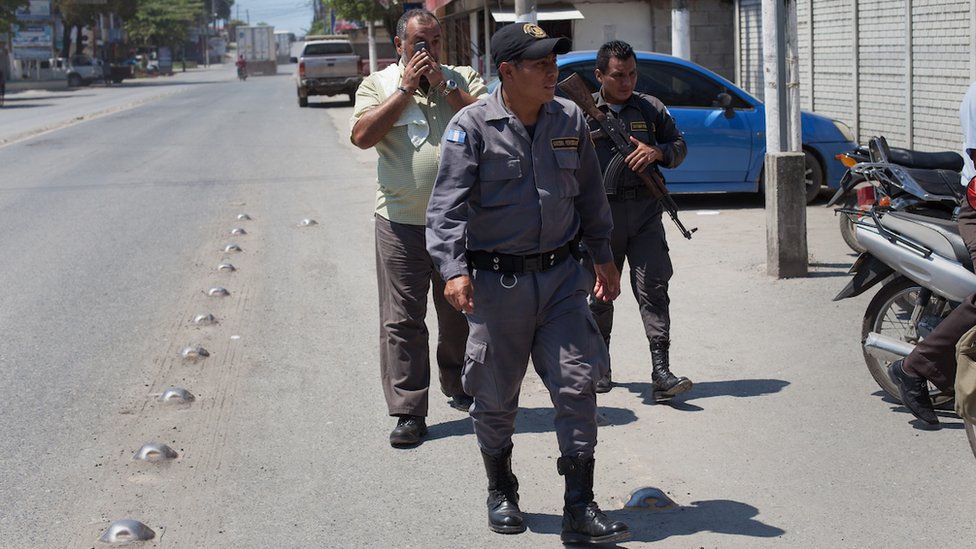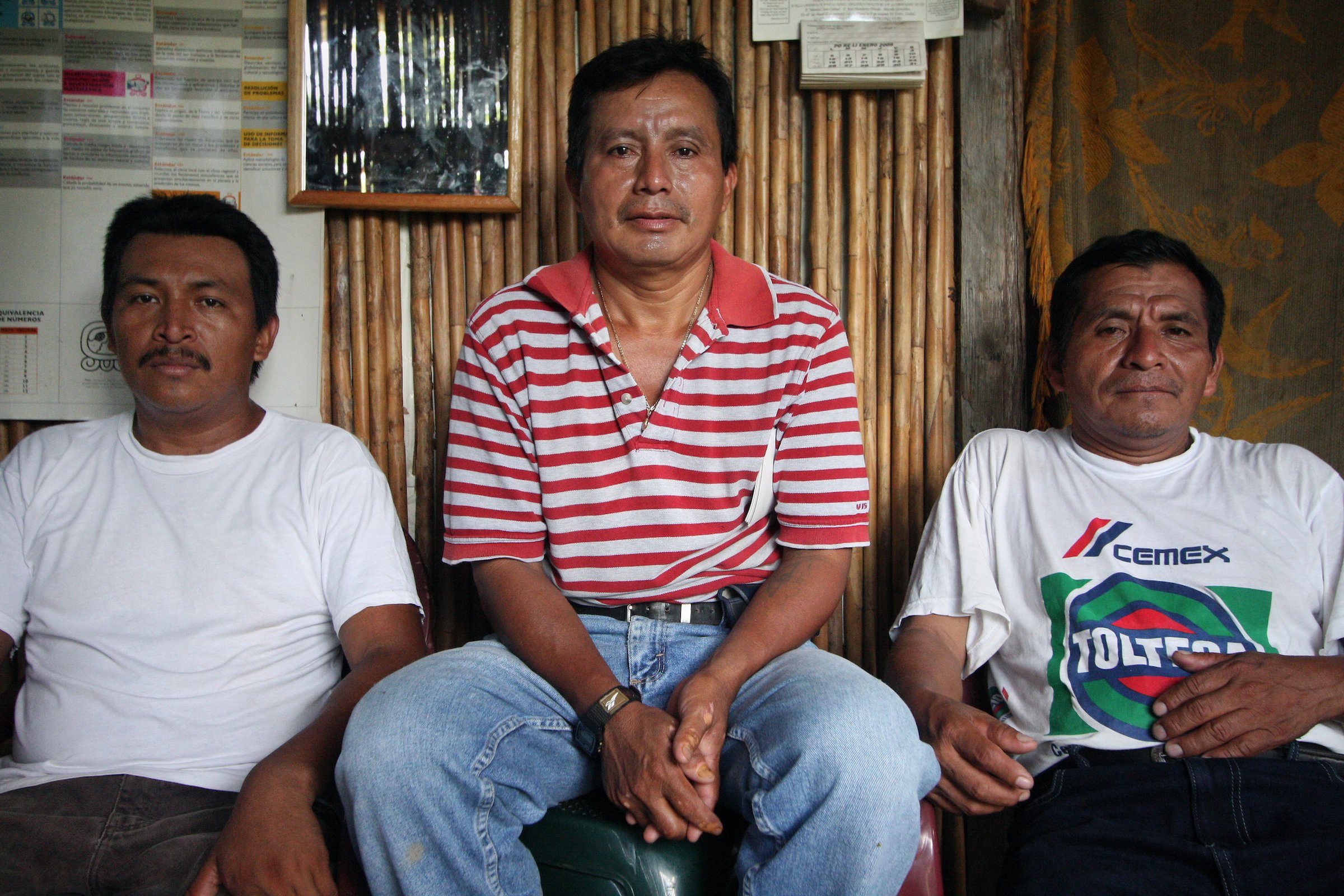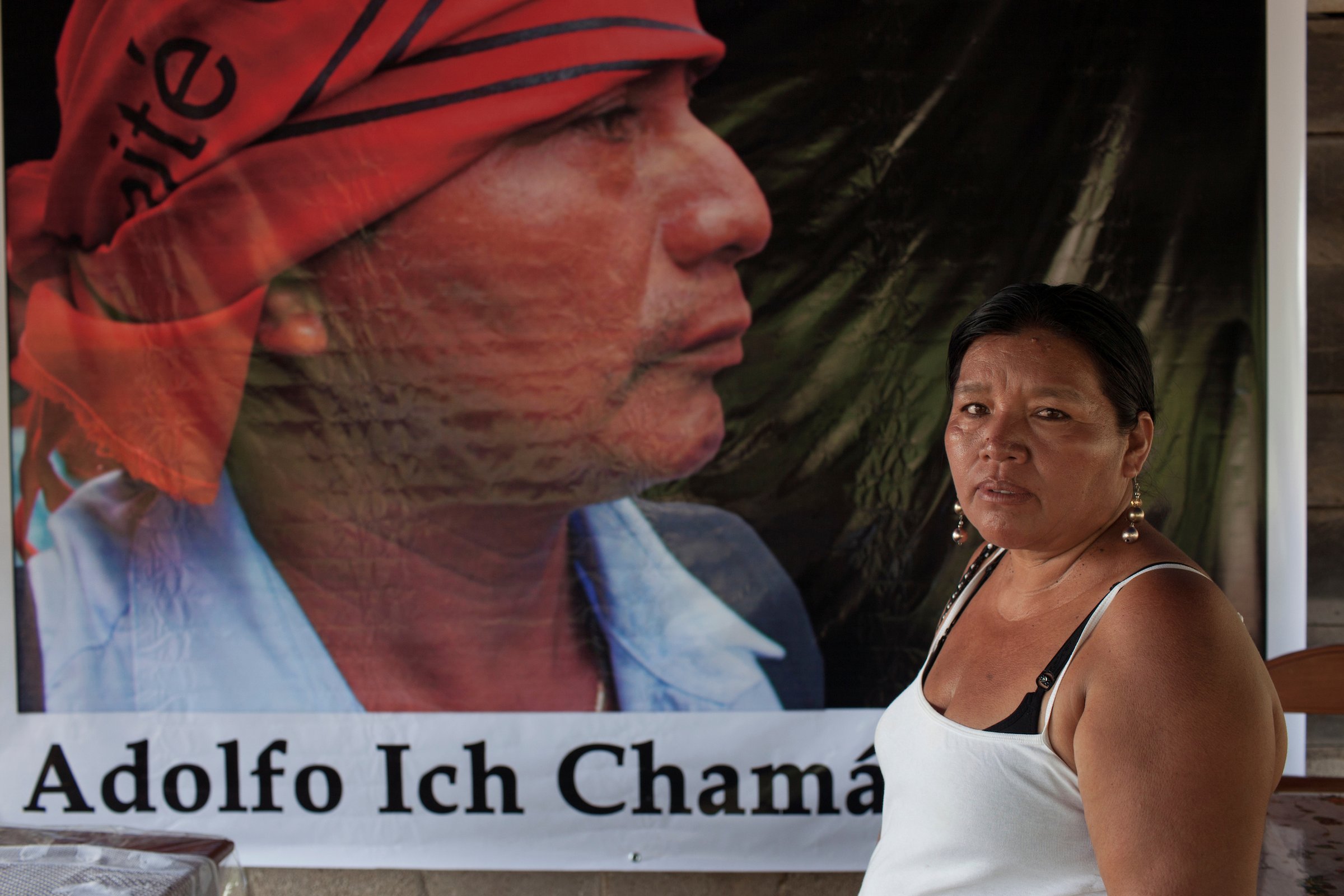This website uses cookies so that we can provide you with the best user experience possible. Cookie information is stored in your browser and performs functions such as recognising you when you return to our website and helping our team to understand which sections of the website you find most interesting and useful.
*:not([hidden]):not(style) ~ *:not([hidden]):not(style){margin-top:1rem;}
]]>
*:not([hidden]):not(style) ~ *:not([hidden]):not(style){margin-left:0.5rem;}
]]>

image copyrightJames A. Rodriguez
*:not([hidden]):not(style) ~ *:not([hidden]):not(style){margin-top:1rem;}
]]>
The ex-security chief at a mine in Guatemala, Mynor Padilla, has pleaded guilty to killing an anti-mining activist in 2009.
Adolfo Ich was killed at the Fénix mine, which was owned at the time by a subsidiary of Canadian mining giant Hudbay Minerals.
He had been campaigning against the mining project and for his community's land rights.
Germán Chub, a bystander, was also shot, leaving him paralysed.
The guilty plea comes at a retrial after Padilla was cleared of murder at a previous trial.
What happened in September 2009?
The Fénix nickel project was owned by the Guatemalan Nickel Company (CGN), a subsidiary of Toronto-based Hudbay Minerals.

image copyrightJames A. Rodriguez
CGN wanted to develop the mine, but the indigenous Maya community objected, arguing that much of the company's land belonged to them.
The company said it engaged in talks to negotiate their resettlement but members of the Maya community said they were threatened with forced evictions.
On 27 September 2009, security guards at the mine attacked members of the community with machetes and firearms.
Adolfo Ich was killed, Germán Chub was left paralysed, and at least seven more people were injured.
What was Mynor Padilla's role?
Mynor Padilla was the chief of security at the Fénix project and witnesses said he was the key man in the attack on 27 September 2009.
Hudbay defended its personnel, alleging that members of the Maya community had turned on each other and that their security staff had acted in self-defence.
Following a three-year murder trial Padilla was acquitted, much to the outrage of the victims' families who launched an appeal.
What's the latest?
The court of appeal overturned the acquittal and ordered a retrial which began in December 2020.

After having for years maintained his innocence, Mynor Padilla entered a guilty plea which was accepted by the court on Wednesday.
A lawyer for Adolfo Ich's widow in a civil lawsuit against Hudbay Minerals in Canada called it a "momentous day".
Why does it matter?
There are three civil lawsuits under way against Hudbay Minerals in Canada, in connection with the Fénix mine.
One of them was filed by Adolfo Ich's widow, Angélica Choc, who alleges that the company failed to take adequate precautions to ensure that human rights abuses would not be perpetrated by Hudbay's security personnel.
In 2013, a court in Ontario allowed the lawsuits to proceed, making it the first time that foreign claimants were allowed to pursue a lawsuit against a Canadian company in Canada for alleged human rights abuses.
Cory Wanless, one of the lawyers for the plaintiffs, said that following Mynor Padilla's guilty plea "it will be difficult for Hudbay to continue to argue that it does not bear responsibility for the killing and shooting".
Hudbay Minerals has released a statement saying it would "review the court's decision once it is released", which is due to happen later this month.
The company, which sold the Félix mine to Swiss-based Solway Group in 2011, also stated that "any agreements made in the Guatemalan court do not affect our view of the facts of Hudbay's liability in relation to civil matters currently before the Ontario court".



 Africana55 Radio
Africana55 Radio 
